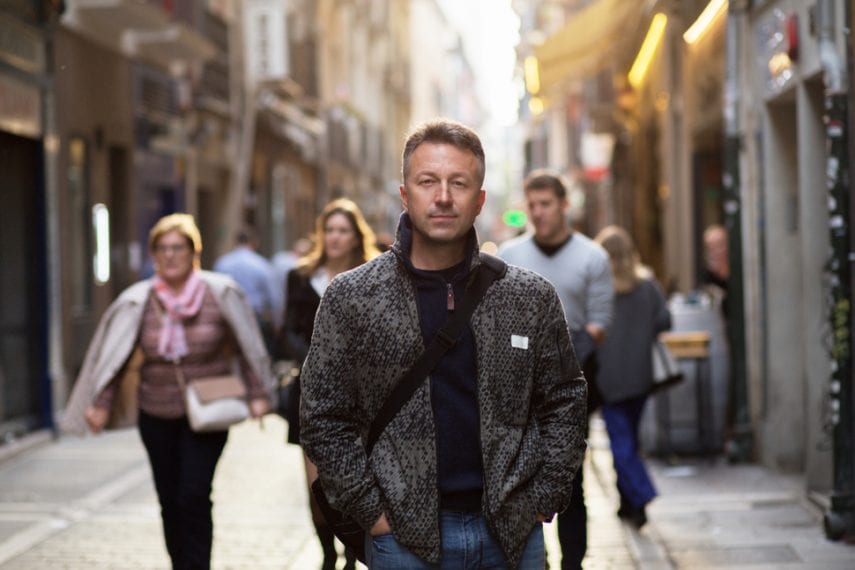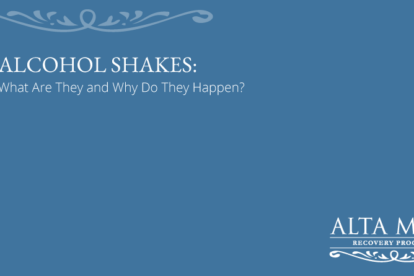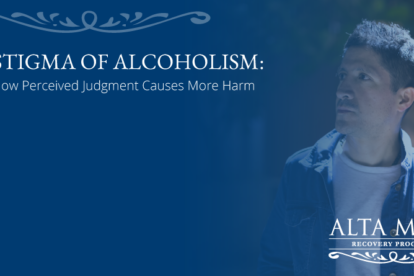What to Do When AA Isn’t Enough: The Next Steps to Recovery

If you’re when AA isn’t enough to help you achieve sobriety, you may start to lose hope in the recovery process. However, it’s important to understand the role of AA and why it should be combined with evidence-based comprehensive care in order to create true and lasting recovery. By recognizing the limits and possibilities of AA and other peer-to-peer support groups, you can move toward getting the treatment you need.
In the United States, recovering from alcohol addiction has become virtually synonymous with Alcoholic Anonymous (AA). Since its inception nearly a century ago, AA now has over 60,000 groups and 1 million active members around the country, offering solace, direction, and hope for people struggling with alcohol abuse. For many, AA serves as a pivotal part of their healing process, and countless members say that they would not be where they are today had it not been for the structure and support of their local groups. As such, AA is often the first place people turn when they are ready to admit that they are abusing alcohol and need help.
But while AA may seem like the natural place to begin the recovery journey, AA participation is not the “cure” for addiction many people hope for. Without being accompanied by comprehensive addiction treatment, relapse is common, and many of the issues that underlie addiction may remain unaddressed even when you are faithfully working the steps. Unfortunately, many people begin to give up hope that they can ever recover if they find themselves continuing to use despite AA participation; discovering that you still can’t break free from alcohol addiction even though you’re doing as you’ve been told can be painful and dispiriting. It damages both your faith in your ability to recover and your trust in the recovery process itself. What do I do when AA isn’t enough? Where do I go from here?
When AA Isn’t Enough
Johan, now 48 years old and seven years sober, still remembers the first time he went to an AA meeting. “I was low at that point,” he says. “My hands were shaking from withdrawal but I had agreed to go because my wife threatened to take the kids and leave if I didn’t get help. The thought of talking to strangers about my drinking wasn’t exactly appealing, but I thought, ‘This is what people do when they’re alcoholics. This is how they recover.’”
But the meeting wasn’t what he expected. Rather than something to suffer through in order to get to his goal, Johan found that comfort in the company of others who understood what he was going through. As people shared their stories, they laughed and cried together. They encouraged each other. They witnessed each other’s struggles. They were seen and they were heard and while each person was on a unique journey, Johan felt a sense of collective healing. “I’d never heard other people talking about the reality of alcohol addiction, the way it impacts your daily life, your sense of self. I saw the secrets I had carried within myself reflected in the lives of others and that was a profound experience. In particular, hearing men talk about their feelings—not their thoughts, but their feelings—made a huge impact on me.”
Walking out of the meeting that night, Johan felt buoyed by the spirit of recovery and became more deeply committed to quitting than he had ever before felt. But the elation of AA was short-lived. “I stayed sober for about a month, the longest I’d ever gone without drinking. Then my wife and I had a fight and I couldn’t deal with it. I had no other way of coping. I went and bought a 6-pack and it was gone in an hour.” He skipped the next meeting.
But Johan didn’t leave AA for good. The meetings gave him the camaraderie that he desperately needed and provided temporary shelter from his urge to drink. Sometimes he could go two or three months without alcohol and thought, “It’s working.” But ultimately, something would always happen and relapse would always return.
Integrated Treatment for Alcoholism & Co‑Occurring Disorders
Understanding the Role of AA and Taking the Next Step
Addiction is a complex and chronic disease of the brain spurred by long-term exposure to drugs of abuse. It is often also intimately intertwined with psychosocial factors that act as the impetus for substance use; you use because you’re depressed, you use because you’re angry, you use to erase the pain of trauma, you use because you never established healthy coping skills. As such, healing from alcohol addiction can be a complicated journey that requires comprehensive treatment in the form of evidence-based medical interventions that seek to restore your brain to a healthy state, help you develop of deep insight into the roots of your substance abuse, and guide you toward safe and healthy coping mechanisms.
AA is not a comprehensive treatment program. In fact, it is not a treatment program at all. Rather, it is “a fellowship of men and women who share their experience, strength and hope with each other that they may solve their common problem and help others to recover from alcoholism.” What AA can offer is in many ways remarkable: a sense of belonging and connection to others who struggle with a highly stigmatized illness, a structured path to follow toward sobriety, meaningful support in your fight against addiction. “[AA] offers an important support opportunity that is available anywhere in the world, any time of day or night and it is free,” says addiction expert Dr. Constance Sharff. “An alcoholic in need can pick up the phone or log onto the internet and find instant support and assistance. No other recovery program offers this.”
However, AA was never designed around a medical framework of alcohol addiction, nor is it designed to provide the kind of professional interventions we now recognize as critical to the recovery process. While there is much collective wisdom within AA, it is not a substitute for evidence-based medical treatment. As such, it cannot and should not be the only part of recovery. As Dr. Sharff says, “If used at all, AA should be used in conjunction with evidence-based therapies, therapies proven to provide successful treatment outcomes to those in need.” Additionally, some people simply do not connect with the AA philosophy despite being determined to recover; it is indeed a very specific narrative of addiction and recovery that doesn’t resonate with everyone and may, in fact, be alienating.
For people who find AA helpful, it can be an important component of a comprehensive treatment program; it can provide a kind of support in a way that individual therapy, psychopharmacology, or even clinician-led therapy groups cannot. For those who find the philosophy of AA appealing and resonant, it can also serve as a kind of ideological foundation for recovery in which many find comfort and purpose. For those who do not find AA appealing or resonant, it can be important to know that AA is not a mandatory part of the recovery process; there are other forms of peer-to-peer supports, such as SMART Recovery, and other non-AA recovery groups that can serve as more appropriate recovery resources.
Moving Toward a Richer Treatment Picture
For Johan, lasting recovery only came when he admitted his problems ran deeper than could be addressed in AA. “I relapsed seven times before I went to rehab,” he says. “Seven times. It took me that long to see that alcohol addiction was more complicated than simply deciding to not drink.” And once in treatment, he soon discovered that his addiction itself wasn’t as simple as he had thought either. “My alcohol use was driven by depression and a lack of concrete coping skills,” he explains.
“Without treating that depression, I don’t think I would have ever gotten sober. Without learning how to deal with my feelings, with conflict, with the daily challenges of personal and professional relationships in a healthy way, I don’t think I would have gotten sober. Those were things AA were never going to be able to do for me. Those were things I needed doctors and therapists to help me identify and figure out and give me the space to do it away from my everyday triggers. For me, AA was an important step toward sobriety. It helped me both during my time in rehab and after—it’s been a constant part of my journey. But it could not be the only part.”
Alta Mira offers comprehensive residential treatment for people struggling with drug and alcohol addiction as well as co-occurring mental health disorders and process addictions. Contact us to learn more about our renowned Bay Area program and how we can help you or your loved one start the journey toward recovery.






